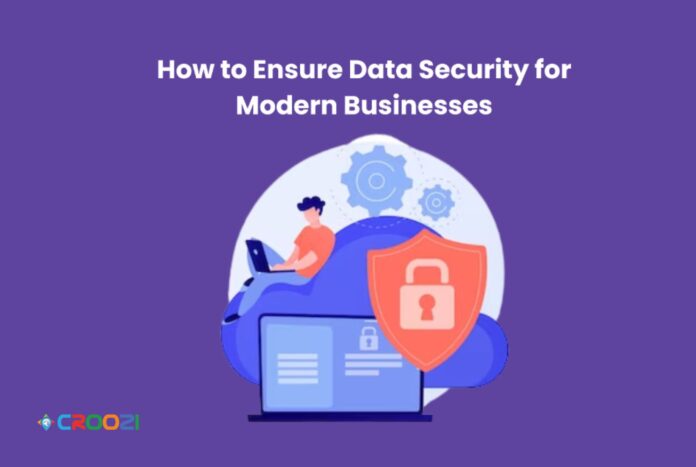How to Ensure Data Security for Modern Businesses
Data now serves as the cornerstone for decision-making, creativity, and competition, making it the lifeblood of contemporary enterprises. However, the growth of data also creates considerable problems, particularly with regard to data security. Maintaining strong data security procedures is a wise business decision with the growing data privacy concerns, and it is also required by law.
In this blog, we’ll explore the crucial steps companies must take to protect their sensitive data. We’ll also look at the importance of GDPR Certification and GDPR Risk Assessment in attaining complete data security.
Table of Contents
- Understanding the Data Landscape
- Conducting a GDPR Risk Assessment
- Data Encryption: The First Line of Defense
- Employee Training and Awareness
- Regular Software and Hardware Updates
- Access Control and User Privileges
- Secure Data Backup and Recovery
- Regular Security Audits and Penetration Testing
- Third-Party Risk Management
- GDPR Certification: A Trust-Building Measure
- Conclusion
Understanding the Data Landscape
The data environment that organizations operate in must be understood before delving into the details of data protection. Data is available in many different formats, including consumer data, financial information, intellectual property, and many more. Businesses must classify and priorities their data according to its significance and possible dangers since the sensitivity of this data varies.
Conducting a GDPR Risk Assessment
The GDPR Risk Assessment is a crucial step in ensuring data protection for companies doing business in the EU or handling the data of EU people. Businesses are required by the General Data Protection Regulation (GDPR) to evaluate any risks connected to their data processing operations. This evaluation helps in finding weaknesses, assessing the consequences of prospective data breaches, and putting in place the appropriate security measures.
Data Encryption: The First Line of Defence
Encryption is one of the main strategies for data security. Data is encrypted to make sure that even if it ends up in the wrong hands, it can’t be decoded without the correct decryption key. A fundamental step in data security is implementing strong encryption mechanisms across all of your data, both while it’s at rest and when it’s being sent.
Employee Training and Awareness
Data security is not only a technology issue; there is also a human component. The first line of defence against data breaches is often the workforce. It is crucial to make sure that your team is knowledgeable about and educated in security best practices. The possibility of insider threats may be decreased, and regular seminars and simulations raise awareness.
Regular Software and Hardware Updates
The security of outdated technology and software is more at risk. Maintaining your systems with the most recent patches and security upgrades is a proactive strategy to lower the risk of data breaches since hackers often target known vulnerabilities.
Access Control and User Privileges
Not all workers need access to every piece of data. Strict access control methods make sure that people may only access information that pertains to their work functions. This minimises the possible harm that might be done in the event of a breach.
Secure Data Backup and Recovery
Various events, such as hardware malfunctions, natural catastrophes, or cyberattacks, might result in data loss. Even in the worst-case situation, your company can swiftly recover and go on with operations if you have a strong data backup and recovery strategy in place.
Regular Security Audits and Penetration Testing
It’s critical to anticipate future hazards. In order to find flaws in your data security system before thieves can, do regular security audits and penetration tests. These tests let you identify the weaknesses in your system and quickly fix them.
Third-Party Risk Management
Numerous companies collaborate with outside suppliers and service providers who have access to their data. It is crucial to do due diligence on these organisations to make sure they adhere to the same data security standards as your company.
GDPR Certification: A Trust-Building Measure
An essential step in proving your dedication to data protection is obtaining GDPR Certification. Along with assisting your company in adhering to EU standards, it also promotes client loyalty. With GDPR certification, you can demonstrate that your data protection procedures adhere to the strictest data privacy regulations in the world.
Conclusion
For modern enterprises, data security is a need. Neglecting it may have negative effects on your reputation, your finances, and your legal situation. Businesses must adopt a complete strategy that includes GDPR Certification, GDPR Risk Assessment, strong technological safeguards, and a watchful staff to protect data security. Companies may preserve their valuable information and foster consumer trust in an increasingly data-conscious culture by putting a high priority on data security.

